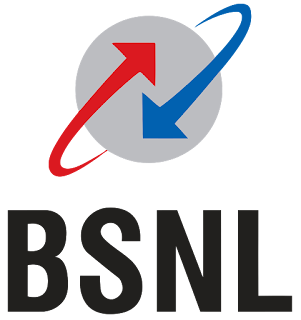 Bharat Sanchar Nigam Limited (abbreviated BSNL) is an Indian state-owned telecommunications company headquartered in New Delhi. It was incorporated on 15 September 2000 and assumed the business of providing telecom services and network management from the erstwhile Central Government Departments of Telecom Services (DTS) and Telecom Operations (DTO) as of 1 October 2000 on a going-concern basis.
Bharat Sanchar Nigam Limited (abbreviated BSNL) is an Indian state-owned telecommunications company headquartered in New Delhi. It was incorporated on 15 September 2000 and assumed the business of providing telecom services and network management from the erstwhile Central Government Departments of Telecom Services (DTS) and Telecom Operations (DTO) as of 1 October 2000 on a going-concern basis.
It is the largest provider of fixed telephony and broadband services with more than 60% market share, and is the fifth largest mobile telephony provider in India. However, in recent years, the company’s revenues and market share have plummeted resulting in heavy losses as a result of intense competition in the privatizing Indian telecommunications sector. BSNL is India’s oldest communication service provider and had a customer base of 93.29 million as of June 2015. It has footprints throughout India, except for Mumbai and New Delhi, where telecommunicatons are managed by Mahanagar Telephone Nigam (MTNL).
BSNL Mobile is a major provider of GSM cellular mobile services under the brand name Cellone. BSNL provides a complete telecom services solution to enterprise customers including MPLS, P2P and Internet leased lines. It provides fixedline services and landline using CDMA technology and its own extensive optical fiber network. BSNL provides Internet access services through dial-up connections as prepaid, NetOne as Postpaid and DataOne as BSNL Broadband.
BSNL offers value-added services such as Free Phone Service (FPH), India Telephone Card (Prepaid card), Account Card Calling (ACC), Virtual Private Network (VPN), Tele-voting, Premium Rate Service (PRM) and Universal Access Number (UAN). BSNL also offers the IPTV which enables customers to watch television through the Internet and Voice and Video Over Internet Protocol (VVoIP). In 2007, BSNL announced plans to provide 5 million broadband connections and secured 80% of the INR 25 billion rural telephony project of the Government of India. On 20 March 2009, BSNL launched blackberry services across India. BSNL paid Rs. 101.87 billion for 3G spectrum in 2010. As of 2011, BSNL offered coverage in over 800 cities across India. BSNL launched in 2012 a 3G wireless pocket-sized router called Winknet Mf50. BSNL 3G provides HSPA+ service with a top speed of 21.1 Mbit/s downlink and 5.76 Mbit/s uplink.




